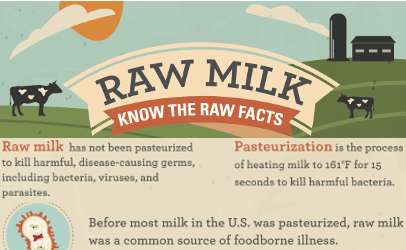Editor’s note: Following is a letter sent by Roberta Wagner of the Consumer Brands Association to FDA Commissioner Robert Califf. Wagner’s letter is in response to a statement sent out by the commissioner that suggested consumer groups’ comments about the planned reorganization of the FDA are making it difficult to secure applicants for the post of deputy commissioner for foods.
Dear Commissioner Califf:
I am writing on behalf of Consumer Brands Association1 in response to your letter dated March 9, 2023. We seek to correct the record on several points, emphasize why we do not believe FDA’s proposed redesign of its human foods program will permanently unify the program, and provide a potential alternative. We aim to stress our organization’s commitment to the health and wellbeing of consumers and our reliance on FDA to perform its regulatory role effectively, efficiently, and transparently.
As we look to the future of the CPG industry, modernizing and reforming FDA remains top of mind for the food, beverage, and cleaning and personal care companies we represent. Their experiences provide real world evidence of why a modernized FDA is warranted. We’ve followed, with great interest, your plans for delivering a modernized human foods program, but remain concerned that some of the fundamental issues plaguing the agency are destined to remain intact. Our members report that inefficient decision making has slowed reviews of industry submissions, hindering progress and even rendering innovation obsolete. We continue to hear that inexperienced and undertrained inspectors are being sent into the field, and a split and siloed FDA foods program is undercutting agency communication, collaboration, and engagement with industry. We struggle to see how these critical issues impacting consumer access to safe and nutritious food will be resolved given FDA’s rejection of major recommendations from the Reagan Udall Foundation’s third-party, expert panel.
I worked at the FDA for 28 years where I ultimately held SES positions in ORA, including as the Deputy ACRA, and CFSAN, including as the head of the Office of Compliance, Deputy Center Director for Regulatory Affairs and Associate Commissioner for FSMA implementation. This was followed by five years at USDA’s Food Safety and Inspection Service where I held SES positions as the second in command over the inspection force and lead for Office of Policy. I now serve as the Vice President of Regulatory and Technical Affairs at the Consumer Brands Association where I focus on food safety and nutrition advocacy on behalf of our members. I am uniquely situated to provide the alternative below on behalf our organization.
Structure, Governance, Leadership and Cultural Changes
For more than a year, Consumer Brands, as part of a coalition and independently, has called on FDA to elevate and unify its foods program under a fully empowered deputy commissioner for foods, with accountability to the commissioner and authority over CFSAN, the food and feed safety components of CVM, and the human and animal food components and operations of ORA. We believe this should be done with urgency to benefit consumers and support industry in delivering safe foods to the marketplace. A unified structure and a full-time deputy commissioner for the FDA foods program also translates into results we all care about – focused leadership, accountability, and effective dialogue with myriad stakeholders.
Consumer Brands believes the expert panel convened by the Regan Udall Foundation (RUF) did an outstanding job completing its mandates and providing bold recommendations for the agency’s consideration. The panel recommended that the FDA foods program be unified under a single leader with direct management authority over the entire program, including the inspection, laboratory and import oversight elements now housed in ORA. This recommendation has been rejected by the agency despite the fact that these field-based elements consume nearly 70% of FDA’s food-related budget and are vital to the transformation of FDA’s food safety program to align with the prevention oriented focus envisioned by Congress in FSMA. Without direct authority over FDA’s frontline field force, it is my belief that any new leader will be unable to overcome the myriad cultural and operational problems documented by the expert panel or accomplish the transformational, program wide modernization called for by the expert panel.
Further, we agree with the expert panel that the large, frontline workforce needs to become an integral part of the FDA’s foods program, and not remain a separate organization that protects its independence and outdated culture of reacting to food safety problems rather than preventing them.
To be clear, the boxes on the organizational chart and “who reports to whom” matter when redesigning FDA’s foods program. Structure (boxes and lines) will send one of two messages: either there is a single FDA foods program or, alternatively, there are three, distinct organizational components with disparate leaders and cultures. We urge FDA not to reward entrenched autonomy by replicating a siloed system. Placing all components of FDA’s foods program under the deputy commissioner on an organizational chart lays out the expectation of a single, unified foods program and will facilitate the permanent transformational and cultural changes needed for long term success.
Rest assured that Consumer Brands has not been pointedly dissuading applicants for the Deputy Commissioner position. Quite the contrary, we have been speaking to and encouraging talented and qualified persons to evaluate the published job description and apply. The Reagan-Udall report spelled out the leadership qualities needed to make real and lasting change. The job requires a specialized skill set, and we encourage qualified candidates to read the report and ask you thoughtful questions about your vision for the role.
Alternative Approach to FDA’s Announced Redesign
Consumer Brands would like to offer an alternative to FDA’s human foods program redesign. We are confident this plan would help FDA urgently evolve its foods program to one that is action oriented and that makes timely decisions to assure consumers have access to safe, affordable products. Moreover, these changes do not require an act of Congress and can demonstrate meaningful progress in a relatively short period of time.
- Proposed ORA Restructuring Strategy
FDA’s vision for ORA modernization appears to be focused on enterprise-wide business flow and data capture improvements through the right IT investments. We are concerned that consistent workflows and data capture with regard to inspections, compliance follow-up and enforcement will be based on the traditional ORA model of reacting to problems once they occur, which may work for drugs and devices but not for foods. Consumer Brands is calling on ORA to shift to a prevention-oriented mindset which would transform food-related fieldwork and make the best use of federal and state resources.
Consumer Brands believes the only plausible rationale for the agency’s rejection of the expert panel’s advice is that ORA performs certain support functions for field staff that are common across food, medical product, and tobacco programs, and that efficiencies will be lost if these services are managed separately. This includes facilities, travel, and human resource support. For the record, we agree that the deputy commissioner should not be managing day-to-day administrative activities. To the extent such support services can be performed more efficiently by an administrative unit serving all FDA programs, we encourage this approach. Importantly, in a shared services environment, services required to support the foods program should be paid from resources appropriated by Congress to the foods program. FDA must acknowledge that in exploring enterprise-wide processes and procedures, medical products and food are vastly different. FSMA directed FDA to transition from reacting to food safety problems to preventing them in the first place.
The two elements of ORA that manage the foods program’s large inspectorate and laboratory operations are already lodged within separate ORA offices – namely, the Office of Human and Animal Food Operations (OHAFO) and the Office of Human and Animal Food Laboratory Operations (OHAFLO). The reporting lines for these offices could readily be changed from ORA’s Associate Commissioner for Regulatory Affairs to the foods program’s Deputy Commissioner for Foods.
ORA’s oversight of food imports might require a hybrid approach. It is currently managed through the ORA Office of Enforcement and Import Operations that oversees a two-step process involving initial computer screening and selective field exams and/or sample collections of imported food shipments to verify regulatory compliance. The initial screening is currently performed on a centralized basis by a staff that screens all incoming FDA-regulated products. If it’s the most efficient way to perform this initial step, it could continue on a shared services basis. Staff performing field exams and sampling could be assigned to OHAFO and be integrated into a unified foods program.
The foods program’s information and data analysis systems need to be overhauled and modernized to meet today’s food safety needs, which differ from the medical product and tobacco industries. You announced an FDA goal of “strengthening our enterprise information technology and analytical capabilities to fulfill the promise described in the New Era of Smarter Food Safety and support the improvement in workflow that will accompany these changes.” This necessary modernization will be paid for by the foods program budget and must be directed and managed in line with foods program needs and priorities. An enterprise-wide information system that meets medical product specifications but does not fully meet foods program needs, will be a bad investment.
- Proposed CVM Restructuring Strategy
ORA created a specialized human and animal food inspectorate and human and animal food regulatory laboratories under program alignment to deliver on FSMA. We believe the human and animal policy contingents also should be combined. This would facilitate FDA delivering on its commitments to the One Health initiative. By linking humans, animals and the environment, One Health can help address the full spectrum of disease control – from prevention to detection, preparedness, response and management. Further the federal, state, local, tribal and territorial national integrated food safety system envisioned and called for in FSMA involves both human and animal food safety. It simply does not make sense to create an Office of Integration for human foods that does not include the oversight of animal feed and pet food. We remain convinced that the pet food and feed safety components of CVM should be included in the redesign of FDA foods program given the overlap and circularity of issues that exist.
We recognize that CVM does important medical products and nutrition work with regard to pets and food producing animals, and we have never stated those components should be pulled under the deputy commissioner for foods position.
We suggest, as an alternative to FDA’s redesign plan, that CVM’s Office of Compliance, report to the deputy commissioner for foods. A dotted line to the CVM Director could be drawn if viewed necessary. In addition, if there are shared services that CVM could provide to this component, they could remain in play through appropriate foods program budget reimbursement mechanisms.
Challenges with Matrix Management
We disagree with FDA’s proposed use of matrix management as the tool to unify its foods program at the highest levels of the organization. We acknowledge the appropriate application of matrix management to manage multiple, discrete projects or tasks that require diverse subject matter expertise, to coordinate staff functions, and importantly, to speed decision making. But it only works if the right structure is established. Additionally, we question the use of matrix management to drive cultural and performance transformation across a large program.
Publications on the topic suggest that matrix management often fails at the senior most management levels of an organization. The matrix approach to FSMA implementation has proven that. For example, a 2014 high level FSMA implementation strategy document focused on transforming how the field force would work under FSMA remains on ORA’s website today (https://www.fda.gov/food/food-safety-modernization-act-fsma/operational-strategy-implementing-fda-food-safety-modernization-act-fsma). It describes principles to guide a new one-mission, one program approach to field implementation of FSMA’s prevention framework. ORA concurred with the strategy in word only, but never seriously pursued implementation.
Constructive and Responsive Relationships with FDA
Consumer Brands continues to engage and collaborate with Dr. Susan Mayne and her team at CFSAN and Michael Rogers and his team at ORA, and we look forward to doing the same with Tracey Forfa and her team moving forward. We have engaged with the agency on a myriad of diverse and important foods program issues including most recently: chemicals management and prioritization; recycling and innovation in food packaging; e-commerce food labeling principles and standards; front of pack nutrition labeling; the implied nutrient content claim, healthy; and inspection, compliance and recall modernization. Consumer Brands continues to lean in and provide thought leadership to the agency on these issues. We strive to be a problem solver and solutions provider. For clarity, Consumer Brands, and the food industry more broadly, has long considered FDA’s human foods program to cover acute (pathogens) and chronic (chemical) food safety and nutrition issues. Please see Appendix 1 for a partial listing of our most recent interactions with a focus on chemicals safety and nutrition.
Consumer Brands has stated repeatedly that key structural, governance, leadership and cultural changes are foundational to FDA modernization, but more is needed io address performance issues, including procedural and policy reforms, to assure the agency can keep pace with industry innovation and rapidly evolving consumer preferences. Last year, Consumer Brands recommended a series of procedural and policy reforms that embrace technology and reframe FDA’s foods program operations. The major categories and tactics targeted for reform are detailed in our Consumer Agenda for FDA Modernization and include, in part: labeling modernization, chemicals management modernization, modernization, including hiring staff with appropriate subject matter expertise, to facilitate food packaging innovation, and modernization to streamline the review of industry submissions including food additive petitions, food contact notifications, and requests for letter of no objections.
We recognize that such modernization and reform will require additional agency funding. Consumer Brands is reluctant to advocate for such funding until it understands how the over one billion dollars the FDA gets for its foods program each year is currently being used. We appreciate and look forward to the upcoming additional budget briefing.
Closing
Consumer Brands does not believe the FDA’s proposed redesign goes far enough. Much more is needed to tackle the food program’s structural vulnerabilities that resulted in the infant formula shortage and are putting consumers’ health at risk. We request the agency revisit the recommendations of the Reagan-Udall Foundation expert panel, specifically those calling for the commissioner to elevate, integrate and unite the foods program under a fully empowered deputy commissioner.
If you would like to further discuss any of the contents of this letter, please reach out to me.
Sincerely,
Roberta F Wagner
Vice President, Regulatory Affairs Consumer Brands Association
cc
Dr. Janet Woodcock, Principal Deputy Commissioner, FDA,
Dr. Susan Mayne, Director, CFSAN,
Dr. Judy McMeekin, Associate Commissioner for Regulatory Affairs, ORA,
Michael Rogers, Assistant Commissioner for Human and Animal Food, ORA
Appendix 1
Chemical Safety
Consumer Brands Association has engaged most recently with the agency on the following (list is not exhaustive):
- Last year, I met with CFSAN to discuss the need for more transparency and stakeholder engagement on how the agency prioritizes and manages its chemicals safety work; in response, Dr. Musser presented during a webinar last month on these topics attended by over 200 industry representatives.
- We continue to submit comments on the agency’s proposed action levels for heavy metals in various foods marketed for babies and young children being established under the Closer to Zero initiative. Further, Consumer Brands has been working with external counsel to develop models for private-public data sharing to help inform the agency’s heavy metal policies.
- We met with CFSAN to advocate for an update to the agency’s 2008 plastics recycling guidance to reflect advanced recycling and the current state of the science and for more timely reviews of industry requests for letters of not objection, which take on average 18 months to complete. These actions need to be addressed by the agency with urgency to avoid stunting industry innovation in food packaging given the proliferation of state recycled content bans and mandates.
- We met with CFSAN to discuss the increase in state legislative activity associated with the regulation of PFAS in CPG products, including food packaging, ingredients and finished products, which is creating a regulatory patchwork and making it difficult for companies that have facilities in multiple states to operate. We asked the agency for added transparency on its PFAS activities and for a document that describes the federal government’s approach to PFAS to provide to states in an effort to fend off even more legislative activity. We also asked that the FDA facilitate a stakeholder update on the federal government’s PFAS action plan.
Nutrition
Consumer Brands Association has engaged most recently with CFSAN on the following (list is not exhaustive):
- The proposed update to the implied nutrient content claim, healthy. Consumer Brands represents the largest companies that produce main dishes and meals. Most consumers do not have the time or money to prepare meals from scratch every day so they look to our companies to provide convenient, accessible, affordable and healthy meal and main dish options. In response to evolving nutrition science and reports of increases in food related chronic disease, our companies have and continue to renovate, reformulate, and create new varieties of meals and main dishes that are nutrient dense and that also limit certain nutrients. All of this is explained in the substantive comments submitted by Consumer Brands in response to FDA’s proposed update to the definition of healthy. In our comments we include an alternative framework that would allow more nutrient dense foods with limited sodium, saturated fat and added sugars to bear the healthy claim for the agency’s consideration. We met with the agency to walk through the alternative prior to submitting it in our comments.
- And Consumer Brands continues to manage the voluntary facts-based front of pack nutrition labeling (FOPNL) program, Facts Up Front (FUF), developed by industry. FUF summarizes important nutrition information on the front of food packages including calories, sodium, added sugars and saturated fat. We continue to engage with CFSAN on updates to this program to assure it aligns with the FDA’s Nutrition Facts Label and the Dietary Guidelines for Americans as well as more generally on the future of front of pack nutrition labeling.
(To sign up for a free subscription to Food Safety News,click here)
]]>









 Editor’s note: This column was originally published by
Editor’s note: This column was originally published by 
 Editor’s note: We want to hear from our readers, and that’s you. Letters to the Editor can be submitted via the
Editor’s note: We want to hear from our readers, and that’s you. Letters to the Editor can be submitted via the 
 About the author: Robert P. Lavieri of EAS Consulting Group’s Independent Consulting Group is an expert in the development and delivery of governance programs for the development of sustainable compliance systems. His expertise includes design, development, and implementation of Standard Operating Procedures, Best Practices, Good Manufacturing Practices (CGMP’s) and technical expertise across a broad range of compliance areas.
About the author: Robert P. Lavieri of EAS Consulting Group’s Independent Consulting Group is an expert in the development and delivery of governance programs for the development of sustainable compliance systems. His expertise includes design, development, and implementation of Standard Operating Procedures, Best Practices, Good Manufacturing Practices (CGMP’s) and technical expertise across a broad range of compliance areas.